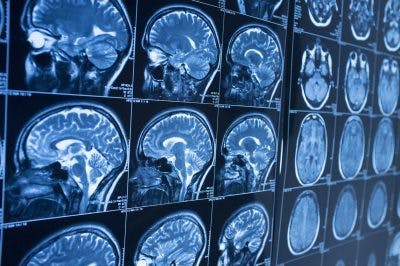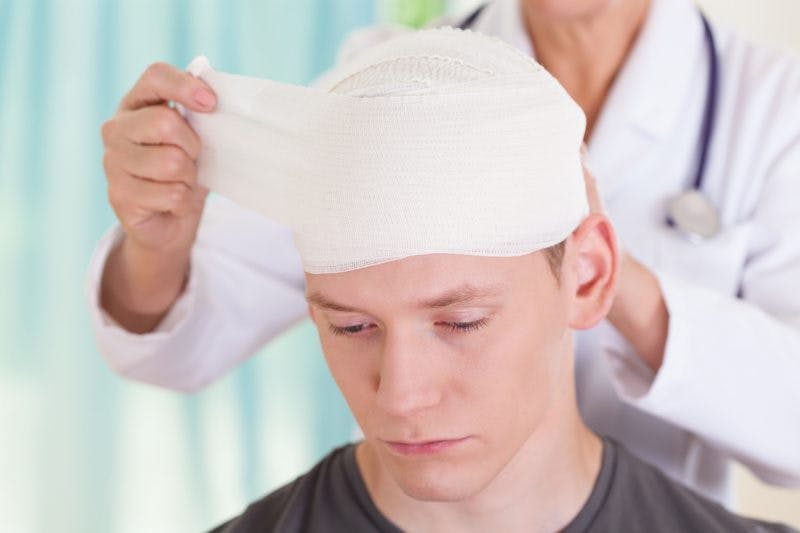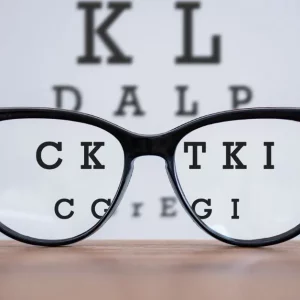Can a head injury cause a stroke?
While most people know a head injury increases their risk of dementia, many do not realize its connection to stroke. But new research reveals that TBI can, in fact, lead to a stroke.
Today’s article will explain why a head injury can cause a stroke, and how you can reduce your risk.
Connection Between Head Injury and Stroke
According to several nationwide studies, a single head injury can increase a person’s risk of stroke by almost tenfold.
In a 2011 study published in the journal Stroke, researchers examined the records of over 23,000 TBI patients. These patient’s records were then compared to 69,597 people without a brain injury.
The researchers found that 2.9% of patients with a traumatic brain injury had experienced a stroke within five years of their injury. In contrast, only 0.3% of healthy patients had a stroke within that same period.
This study wasn’t the only one to find a correlation between head injury and stroke, though. Researchers at the University of Michigan and the V.A. also discovered that people with a brain injury were more at risk of stroke.
In fact, TBI survivors were 30% more likely to have a stroke than people without a history of head injury. However, the number itself was still relatively low. Only 1.1% of TBI patients in the study experienced a stroke.
Other studies have also shown that even mild head injuries like concussions can increase someone’s risk of stroke. In people with concussions, for example, the incidence of stroke is higher than in those without a concussion.
All of this strongly indicates that there may be a correlation between head injury and a subsequent stroke. But why does this happen? We’ll look at some reasons below.
Why Can Head Injury Cause Increased Risk for Stroke?

It is not entirely clear why head injuries may cause an increased risk of stroke. However, there are two possible explanations.
First, a head injury, especially penetrating head injuries, can damage or weaken the blood vessels in the brain. This can cause them to rupture at a later date, leading to a hemorrhagic stroke.
Second, researchers have found that moderate and severe head injuries can cause blood clotting problems. If the blood cannot clot correctly, this can also trigger a stroke.
For example, if too many blood clots are formed, an ischemic stroke can occur. On the other hand, if the blood becomes too thin, a brain hemorrhage can form.
These factors help explain why a head injury can cause a stroke. But is there any way to prevent a stroke from occurring?
How to Prevent Stroke After Brain Injury
The fact that a head injury can increase your risk of a stroke is concerning. Even with a head injury though, the chances of actually suffering a stroke are still relatively low.
With that said, it’s important to try to reduce stroke risk after head injury. Fortunately, there are 5 proven ways to do this, which we will look at below:
1. Recognize the Warning Signs of Stroke

The first and best way to prevent severe damage from stroke is to recognize the warning signs. The sooner you can get treatment, the higher your chances of recovery will be.
To remember the signs of a stroke, think of the acronym F.A.S.T. which stands for:
- Face. Smile and see if one side droops
- Arms. Raise both arms to see if one arm falls
- Speech. Can the person speak, or are they slurring their words or speaking gibberish?
- Time. If the person displays any of these signs, call 911 right away and write down the time these symptoms appeared
With a stroke, every minute counts. If doctors can treat you within three hours after your symptoms, you can have an excellent shot at recovery.
Other warning signs of stroke include:
- Numbness/tingling or weakness in face, arms, or legs
- Trouble understanding others
- Sudden vision changes in one or both eyes
- Dizziness or balance problems
- Sudden, severe headache
Again, if you experience any of these symptoms call 911 immediately, even if you’re not sure you are having a stroke.
2. Reduce Sodium Intake and Monitor Blood Pressure
High blood pressure is the leading cause of stroke. Unfortunately, a head injury can cause high blood pressure, which will increase your stroke risk.
One of the best ways to lower your blood pressure is to reduce your sodium intake and eat more potassium.
Potassium helps lessen the effect of salt in your body and eases tension in the blood vessels, both of which will reduce your blood pressure. Some foods that are naturally high in potassium include:
- Bananas
- Avocados
- Sweet potatoes
- Tomatoes
- Fish
- Reduced-fat milk and yogurt
Click here for a list of more foods that can help prevent stroke »
3. Exercise Regularly

Exercising enough to break a sweat a few times a week can reduce your stroke risk by twenty percent. It also can bring down your blood pressure, which will further reduce your risk of stroke.
The American Heart Association recommends that people practice moderate physical activity for at least 40 minutes, three to four times per week.
These 40 minutes don’t have to be all in one session, and they don’t have to be as intense as running a marathon. Some examples of activities you can do include:
- Walks around your neighborhood
- Taking the stairs
- Short bike rides
- Gardening
Again, nothing too strenuous, but enough to get your heart pumping.
If exercise causes you fatigue or headaches, take things easy at first. For example, you can slowly build up your tolerance by starting with five-minute sessions (or less!). Then, work your way from there.
4. Reduce Stress
TBI recovery can be stressful, and unfortunately, living with chronic stress increases your stroke risk by fourfold.
That is why it is absolutely critical to find ways to manage stress after brain injury. One effective way to do this is to practice mindfulness. Mindfulness is a meditative practice of trying to be fully present and aware of the current moment.
To do this, it helps to have a point of focus that pulls your attention to your body. For most people, this point of focus is their breath.
When you focus on your breath, it’s much harder for thoughts and worries to get in. This gives you a chance to step back and observe what you are feeling with a clear mind.
If you find it too difficult to meditate, talk to your doctor about medication to alleviate anxiety. While we like to encourage natural methods whenever possible, medication is sometimes the best option for minimizing your chances of stroke.
5. Take Your Vitamins

Finally, certain nutrients can help prevent stroke. You can get these nutrients from food, but vitamin supplements can fill in the gap if you need extra help.
The best vitamins to prevent stroke after head injury include:
- CoQ10
- Vitamin B3 and B12
- Omega 3 fatty acids (fish oil)
Before you start any new vitamins, check with your doctor to make sure nothing will interact with any medication you are taking.
Understanding the Link Between Head Injury and Stroke
Head injury can lead to an increased risk of stroke. Even patients with mild head injuries are at risk.
Fortunately, with the right preventative measures, you can lower your overall stroke risk after brain injury. And by learning the common signs of a stroke, you can improve your chances of getting early treatment, which just might save your life.










